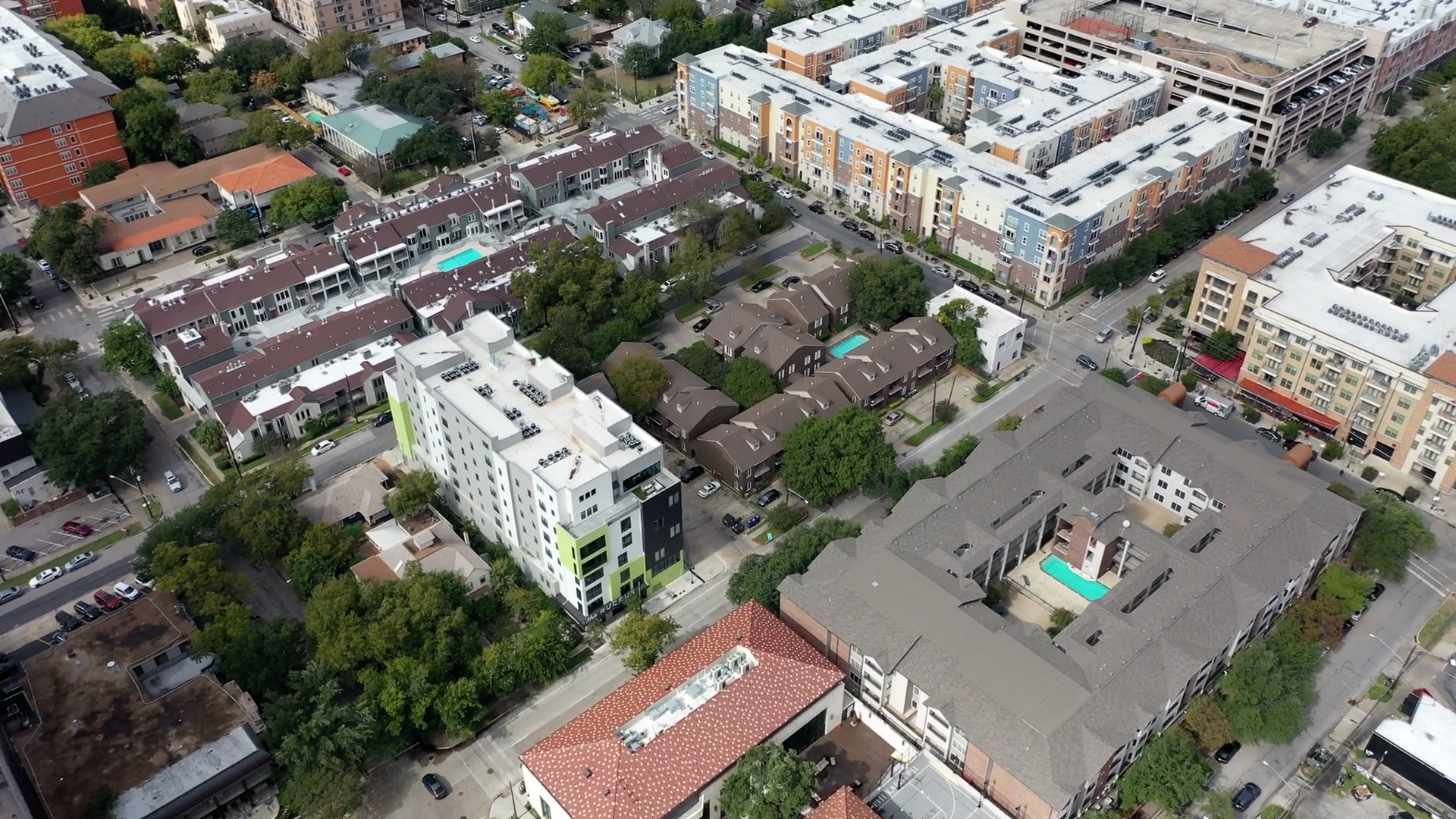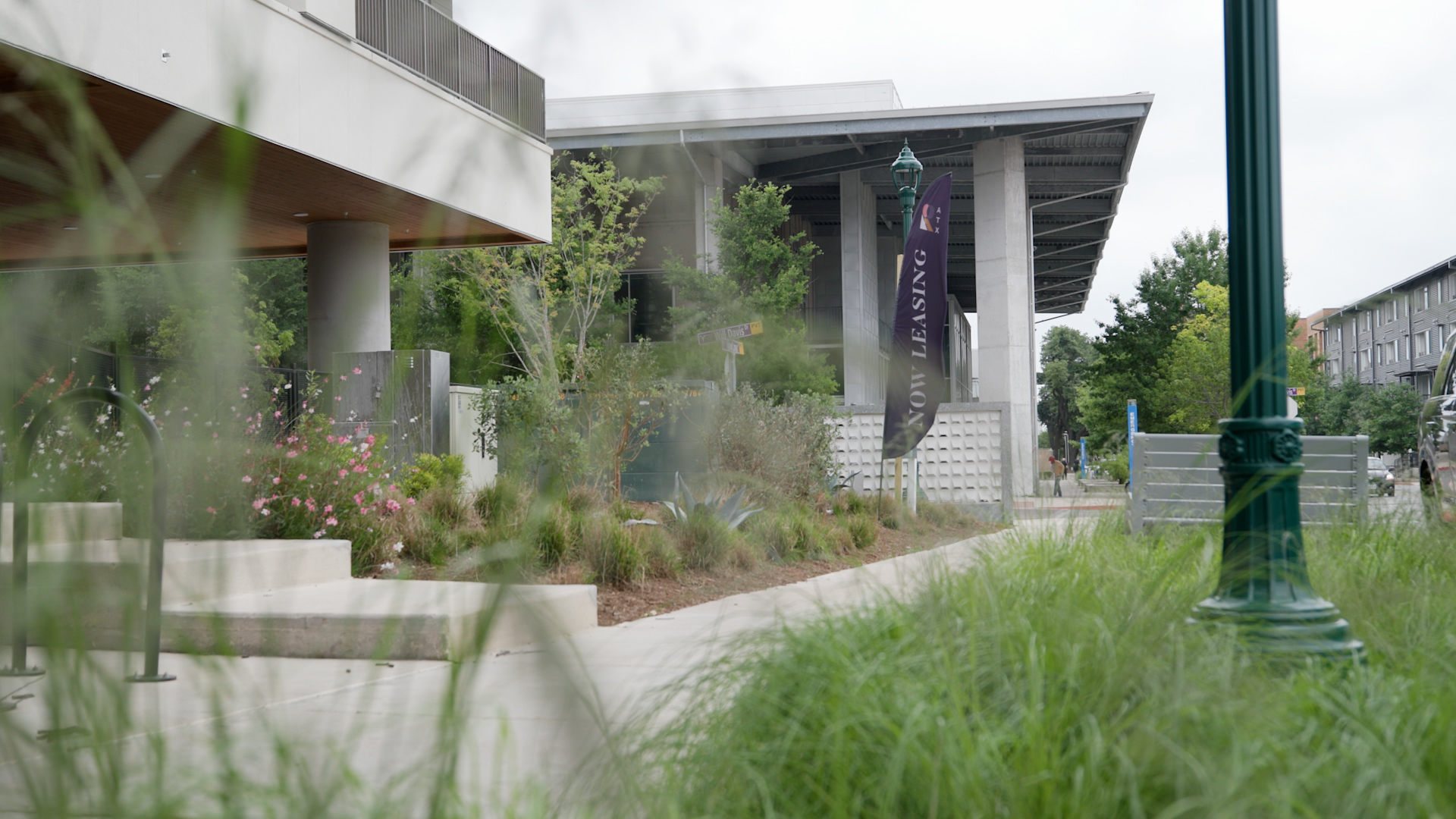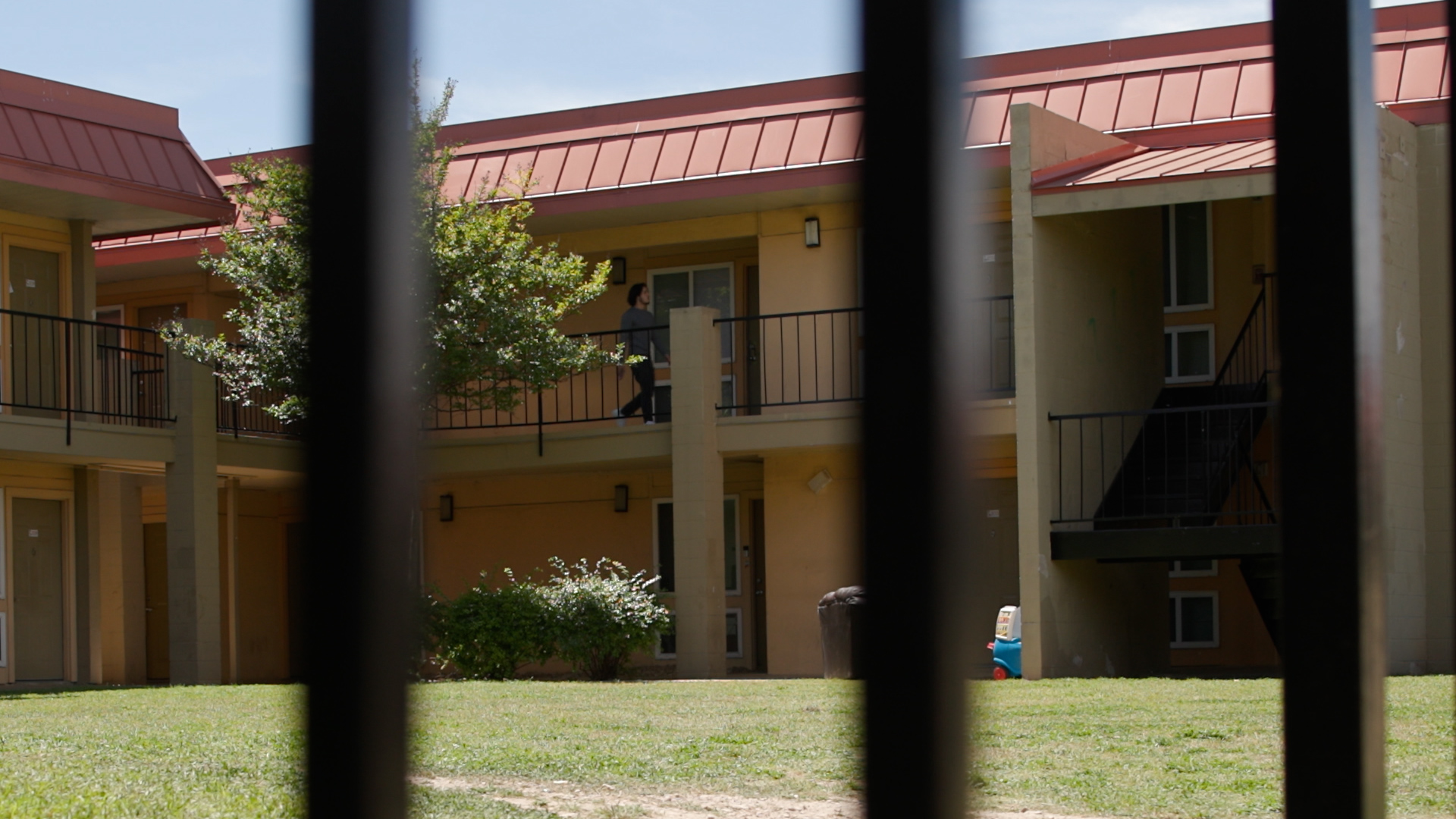Who's Getting Lower Rents In Austin?
Marilu Jaimes had achieved that rare dream in Austin: finding an apartment that was close to everything she needed.
“It was close to the library, close to the grocery store, close to my daughter's school, from work,” Jaimes says. “It was close to everything. Now I feel like I'm going to use a lot of gas.”
Jaimes is worried about fuel prices because she’s going to have to move in with her sister, about 45 minutes away from her current location. Her rent has gone up by roughly $500, and she can’t afford to stay.
“It doesn't seem fair to me that after so many years they simply raise the rent so much that we have no other option but to leave,” Jaimes says.
But recent reports show that rents are going down in Austin. A study by rent.com showed average rents dipping more than 12% year over year. But experts say that the current housing market is responding to previous trends, and that those decreases are not being seen across the housing spectrum. Many residents like Jaimes find themselves more squeezed by housing costs.
An aerial view of apartments in Austin.
Experts say this housing disconnect has been several years in the making.
“They are in correction mode,” says Jake Wegmann. He’s an associate professor in the community and regional planning program at the University of Texas at Austin. He says the population boom Austin saw during the pandemic spurred a flurry of construction projects.
“We were flooded with headlines about how all of America was moving to Austin,” Wegmann says. “And developers responded to that.”
Austin’s population grew by about 6% between 2020 and 2022. And demand for housing increased as well. This drew a lot of developers to build apartments. Now many of those projects are completed, but supply is now above the demand. One report showed that as of last fall, almost 20,000 more multifamily units were delivered than were leased. It’s got some landlords offering deals to bring in tenants.
“Maybe two years ago they would show up to a showing of a rental unit and there'd be a crowd of other people.” Wegmann says. “Now, maybe you're the landlord is saying, ‘hey, if you sign this 12 month lease, then I'll give you a month or more of free rent.’ Right now all the power is with the people looking for apartments.”
A 'Now Leasing' banner flutters in front of a new apartment building. As Austin's population increased, so did demand for housing.
But groups that work with lower income residents say families are struggling with a very tight housing market. Jazmin Rivera is a tenant outreach specialist with BASTA, a tenants rights organization. She says they are not seeing rents drop.
“I would say the biggest thing has been rent increases,” Rivera says. “We do have a lot of folks that are saying there's no affordable housing or there's no housing I could find that's within my range that I can afford right now. And so they're definitely moving to the outskirts of Austin.”
Experts say part of the disconnect is that much of the new housing is aimed at high-income earners. Nationwide, 89% of new apartments built in the last couple of years were considered ‘high-end,’ aimed at upper-middle and high-income renters. They’re also the groups getting deals on rent. One report showed that in Texas cities, luxury apartments saw bigger price drops than middle-tier rentals. Awais Azhar is the deputy director of HousingWorks Austin, and he says those kinds of apartments are inaccessible to many families.
“Most of our newer housing remains unaffordable if it's market rate,” Azhar says. “At the same time, this gap between housing costs and the gap between income has been growing for over a decade in Austin and other parts of the nation. So in some ways, we've got a lot of catching up to do.”
The earnings gap between the lowest and highest paid workers has also skewed a number that has a big impact on low income housing: the Median Family Income, or MFI. Sometimes it’s referred to as the Area Family Income or AMI. It’s the midpoint between an area’s highest and lowest incomes, and it is used to set income limits on subsidized housing. The 2023 median income for a family of four is $122,300, according to the U.S. Department of Housing and Urban Development.
“That is not even close to the incomes of most of the working class families that we're working with here in Austin,” says Noelia Mann. She’s the interim director of BASTA’s eviction mitigation team. She says that as the average income has increased, the rent threshold for affordable housing has increased as well. And while wages also increased for low-income workers over the pandemic, it’s still not enough. A recent study by the Economic Policy Institute showed that even with the 12% real wage increase between 2019 and 2023, there is not a single place in the country for workers in that bracket to earn enough to meet a basic family budget.
“I would say about 90% of people we talk to who are facing eviction or displacement, it's because they're unable to pay the rent because rent prices have increased so much,” Mann says. “We're now actually exceeding pre-pandemic levels of evictions.”
Wegmann says there is a silver lining here for affordable housing advocates.
“This is a great time for the public sector and for nonprofits to scoop up land and to scoop up projects at a lower rate,” Wegmann says. “Maybe they are now able to acquire more projects during a downturn like this and than they had been planning on.”
The city is still pursuing its housing goals. Voters approved $300 million for anti-displacement efforts as part of the new Project Connect transit plan. And in 2017 city leaders set a goal to build 135,000 new homes over 10 years, with about half of them affordable to families earning less than $65,000 per year. But the city is behind on its goal. A recent report showed that as of 2022, only about a third of the affordable houses had been built.
Jazmin Rivera (left) talks with Marilu Jaimes (right) in a courtyard at her apartment complex. Once Jaimes turns in her notice, she'll have 60 days to leave.
Any effort to create affordable housing, whether through construction projects or policy, will take time. But Jaimes says once she gives her notice that she’s leaving, she has about 60 days.
“We are looking for a place to live,” she says. “There’s no other option, right?”
Community journalism doesn’t happen without community support.
Got story ideas, advice on how we can improve our reporting or just want to know more about what we do? Reach out to us at news@klru.org.
And if you value this type of reporting, then please consider making a donation to Austin PBS. Your gift makes the quality journalism done by the Decibel team possible. Thank you for your contribution.
More in Business:
See all Business posts









Contact Us
Email us at news@klru.org